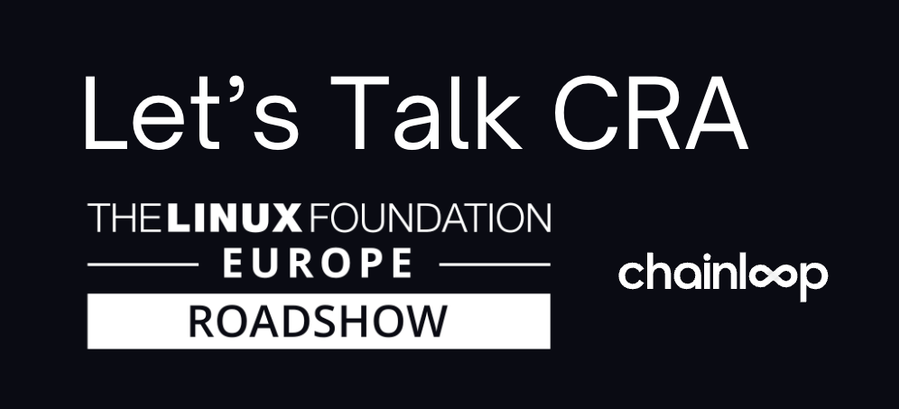Introducing WebAssembly Policy Engine preview: Secure, Fast, and Language-Agnostic Compliance as Code
Javier RodríguezTL;DR: Chainloop introduces WebAssembly (WASM) and WASI-based policy engines in preview, enabling secure, high-performance compliance automation. Teams can now write policies in their preferred programming language while maintaining enterprise-grade security sandboxing. Our Rego engine remains the default and continues to be fully supported. Check out the repository for more details.

Regulatory frameworks like FedRAMP, Executive Order 14028, and the EU Cyber Resilience Act demand sophisticated compliance automation. Traditional policy engines force teams to choose between security and flexibility, but Chainloop’s WASM-powered policy engine eliminates this trade-off.
The Problem with Traditional Policy Engines
Most policy engines suffer from critical security vulnerabilities when executing custom policy logic:
- System compromise through unrestricted code execution
- Resource exhaustion attacks targeting policy evaluation
- Data exfiltration via uncontrolled system access
- Supply chain risks from untrusted policy dependencies
Chainloop solves this with WebAssembly’s proven security model.
WebAssembly Security: Zero-Trust by Default
Chainloop’s WASM-based policy engine provides enterprise-grade security through:
Capability-Based Access Control
Policies can only access explicitly granted capabilities. No unauthorized file system access, network calls, or system interactions—security by default.
High-Performance Execution
Near-native speed with minimal overhead, ensuring policy evaluation doesn’t become a bottleneck in your CI/CD pipelines.
Dynamic Policy Updates
Hot-swap policies without downtime, enabling rapid compliance adaptation as regulations evolve.
WASI: Controlled System Access
WASI (WebAssembly System Interface) enables controlled system interactions while maintaining security boundaries. Here’s how Chainloop leverages WASI for compliance automation:
// Example: Secure vulnerability assessment policy
func processKEVSarifInput(input SarifInput) common.Result {
kevDB, _ := fetchKevDatabase() // WASI HTTP - controlled access
allCves := extractCvesFromSarif(input)
for _, cve := range allCves {
if isInKevDatabase(cve, kevDB) {
result.Violations = append(result.Violations,
fmt.Sprintf("CVE %s in KEV database", cve))
}
}
return result
}This policy fetches live vulnerability data through WASI’s controlled HTTP interface. Only explicitly granted capabilities are accessible—no surprise system calls or unauthorized resource access.
Write Policies in Any Language That Compiles to WASM
No more being locked into specific policy languages. Chainloop’s WASM engine supports any language that can compile to WebAssembly:
Some of the Supported Languages that compile to WASM
- Go/TinyGO - Excellent performance and tooling
- Rust - First-class WASM/WASI support
- JavaScript - Leverage the Node.js ecosystem
- Python - Growing WASM compatibility
- C/C++ - Native WASM compilation
Additional languages will be supported as their WASM compilation capabilities mature and become feasible for policy development.
Example: Attestation Validation Policy in Go
//go:wasmexport Execute
func Execute(pos uint32, len uint32) uint64 {
data := common.ReadBufferFromMemory(pos, len)
result := RunPolicy(data)
return common.CopyBufferToMemory(result)
}
func RunPolicy(data []byte) []byte {
input, _ := common.ParseInput(data)
subjects := extractSubjects(input.DsseEnvelope.Payload)
var result common.Result
if !hasCommit(subjects) {
result.Violations = append(result.Violations, "missing commit attestation")
}
return common.MarshalResult(result)
}Deploy in Minutes
# Compile to WASM
tinygo build -o attestation-policy.wasm -target=wasi policy.go
# Test locally
chainloop policy eval attestation-policy.wasm input.jsonHybrid Policy Architecture
Chainloop supports both Rego and WASM policies in a unified architecture, giving teams flexibility to choose the right approach. Rego remains our default policy engine and is here to stay—it’s battle-tested, widely adopted, and fully supported. The WASM engine is currently in preview, offering an additional option for teams with specific requirements:
Choose the right tool for your team:
- Rego for declarative policy rules and OPA familiarity
- WASM for complex logic, external integrations, or when your team prefers general-purpose languages
Developer Experience: Simplified WASM Development
Chainloop abstracts away WASM complexity while preserving its security benefits:
Pre-built Policy Framework
Common operations like JSON parsing, memory management, and HTTP clients are provided as reusable libraries.
Automated Build Pipeline
CI/CD integration handles WASM compilation transparently—developers focus on policy logic, not build tooling.
Policy Templates
Starter templates for common scenarios: vulnerability scanning, compliance validation, and attestation verification.
Streamlined Workflow
The developer experience is designed around simplicity:
- Write policies in familiar languages using Chainloop’s framework
- Test locally with provided development tools
- Deploy seamlessly through automated CI/CD integration
- Monitor compliance through Chainloop’s unified dashboard
All WASM complexity is hidden behind developer-friendly tooling.
What’s Next
Chainloop’s WASM-powered policy engine represents the future of secure compliance automation. By combining WebAssembly’s proven security model with language flexibility, we’re enabling teams to implement sophisticated compliance logic without compromising security or developer experience.
Key benefits include:
- Enterprise security through sandboxed execution
- High performance with near-native speeds
- Language flexibility for your team’s preferred tools
- Seamless integration with existing Chainloop workflows
- Future-proof architecture that evolves with your compliance needs
This is just the beginning. We’re expanding language support, adding deeper compliance framework integration, and improving development tooling.
Ready to get started? Contact our team to explore how WebAssembly policies can transform your compliance workflow.


